Leviticus is one of the strangest and most intriguing books of the Bible. More than a few well-intended folks trying to follow a read-the-Bible-in-a-year plan have perished trying to cross the vast terrain of Leviticus with its seemingly endless details about the long lobe of the liver in a sacrifice or the rules about beasts that part the hoof but do not chew the cud. But, even if Leviticus is foreign to our world, it has so much to teach us about our God and how He wants us to treat Him. In what follows, we will resist the temptation to delve into the minutiae and instead do our best to grasp the big picture that Leviticus paints about our God and His desire for holiness in His people.
But, before delving into the substance of Leviticus, I want to tell you about the scorpion and the fox. A river was overflowing its banks and putting the animals in danger. The scorpion asked the fox, “Can I ride on your back when you swim across the river?”
“I don’t think so,” replied the fox. “You’ll sting me.”
The scorpion said, “I won’t sting you. If I sting you, we’ll both drown. Please let me ride on your back.”
The fox thought about it for a while and agreed. The scorpion climbed on, and the two set out across the river. Suddenly, when they were about halfway there, the fox felt a painful sting in the back of his neck. With his veins filling with the poison, he turned his head and asked, “Why? Why did you do it?”
“I couldn’t help it,” replied the scorpion. “It’s in my nature.” And they both drowned.
This sad little fable makes an important point for our study of Leviticus. The scorpion has a nature. Its nature is to sting; it can’t help it. Even when it had every reason to exercise restraint, it still stung the fox. Similarly, God’s nature is holy. He can’t help how holy He is. And, just like the scorpion, God’s holiness is dangerous. The Word Biblical Commentary explains God’s holiness this way.
“Holiness” thus refers to Yahweh’s inner nature and “glory” to his outward appearing…It is little wonder that the vision of the holy God is both awe-inspiring and frighteningly terrible (Lev 9:23-24). Humans either retreat in dread or bow in contrite worship. Because his glory is so consuming, God must wrap himself in clouds and deep darkness in order to protect those who serve and worship him (Ps 97:2-3).[1]
I believe this is what drives so much of the concern over purity in Leviticus. Over and over, God tells His people to make distinctions between the clean and the unclean. One example is the food laws found in chapter 11. God spells out in painstaking detail precisely what kinds of land animals, water animals, flying animals, and swarming animals His people can eat, and which ones are unclean. At the end of the chapter, we get a little window into God’s thinking.
Leviticus 11:44-47
44 For I am Yahweh your God. Consecrate yourselves therefore, and be holy, for I am holy. You shall not defile yourselves with any swarming thing that crawls on the ground. 45 For I am Yahweh who brought you up out of the land of Egypt to be your God. You shall therefore be holy, for I am holy. 46 This is the law about beast and bird and every living creature that moves through the waters and every creature that swarms on the ground, 47 to make a distinction between the unclean and the clean and between the living creature that may be eaten and the living creature that may not be eaten.
I love how God begins this statement. He says, “I am Yahweh your God.” This is like me saying to one of my children, “Because I said so.” Because Yahweh is their God, He wants them to consecrate themselves and be holy like He is holy. Yahweh brought the children of Israel out of Egypt, the land of other gods like Ra, Nut, and Apis, to be His people. Thus, they need to be different in a number of ways, including what they eat. We get a little more insight from another text about kosher eating.
Leviticus 20:23-26
23 And you shall not walk in the customs of the nation that I am driving out before you, for they did all these things, and therefore I detested them. 24 But I have said to you, ‘You shall inherit their land, and I will give it to you to possess, a land flowing with milk and honey.’ I am Yahweh your God, who has separated you from the peoples. 25 You shall therefore separate the clean beast from the unclean, and the unclean bird from the clean. You shall not make yourselves detestable by beast or by bird or by anything with which the ground crawls, which I have set apart for you to hold unclean. 26 You shall be holy to me, for I Yahweh am holy and have separated you from the peoples, that you should be mine.
Israel is not supposed to be like the other nations. They should be different; they should be weird. God wants them to be His own special people. He says, “I Yahweh…have separated you…that you should be mine.” God wanted these food laws to separate them out from the other peoples who ate many of these unclean animals. But, this wasn’t all there was to make them different. God also instituted other purity laws that dealt with ceremonial cleanness. For example, one became unclean due to giving birth (Lev 12), having a rash (Lev 13), touching certain dead animals (Lev 11:31-32), touching a corpse (Lev 21:1-3), or discharging certain bodily fluids (Lev 15). Now, these are not sinful behaviors, but they did make you ceremonially unclean. Additionally , God instituted a variety of moral purity laws, including restricting sexual behavior (18), honoring parents (19:3), keeping Sabbaths (19:3), abstaining from idolatry (19:4), providing for the poor (19:9-10; 25:35-55), honesty (19:11-12), employment equity (19:13), fair treatment of the disabled (19:14), just courts (19:15), kind treatment of neighbors (19:16-18), not offering child sacrifices (20:1-5), not talking to the dead (20:6), not harming others (24:17-22), keeping vows (27:1-13), and much more (19:19-37). All together, these three purity systems—diet purity, ceremonial purity, and moral purity—established a lifestyle that made Israel different from her neighbors.
Scholars puzzle over the details of why God forbade eating a particular animal or considered giving birth unclean. However, this is not my interest for this article. Rather, I’m much more drawn to the question of the big picture of why. What was God doing with all these rules—some of which seem like common sense and others arbitrary? The answer to this question, I believe, is found in the inherent danger of God’s holiness, on one hand, and His desire to be near to His people, on the other.
Leviticus 26:11-12
11 I will make my dwelling among you, and my soul shall not abhor you. 12 And I will walk among you and will be your God, and you shall be my people.
God wants to dwell with His people. He doesn’t want to be far off; He wants to be close. However, He cannot change His nature. He is holy. His holiness will never grow or diminish. It is His nature. So, we have a problem. We have a holy God who wants to live among an unholy people. How can we solve this problem? Leviticus. Leviticus solves this problem. It is a book designed to set up a holy nation such that God Himself could dwell in their midst without abhorring them.
Tim Mackie of The Bible Project makes a helpful analogy to the sun in his video titled, “Holiness.”[2] He makes the point that the sun is good, but it also dangerous. The sun does so much good for us, including keeping our planet in orbit, warming us, helping us see, and causing plants to grow. However, the sun also can burn our skin, blind us, and cause cancer. Considering the sun’s massive role in our lives, it’s amazing to think that it is actually 92,955,807 miles away on average. This number is hard to wrap our minds around. Travelling at 100 mph, it would take you 106 years to reach the sun, assuming you didn’t make any pit stops along the way. Even at nearly 93 million miles away, we need significant protection in order to handle the sun’s power. For example, on a hot summer day, we wear sunscreen, sunglasses, and hats. Then, there’s the ozone layer in our atmosphere that absorbs between 97 and 99 percent of the sun’s harmful ultra-violet rays, according to NASA.[3]

Now, what if you wanted to have a small part of the sun in your town? What if you wanted a football sized piece to be a couple of miles from your house? What would you have to do? Well, considering the sun operates on a nuclear reaction, you’d have to put in place safety protocols to protect you from the intensity of the sun. This got me thinking about nuclear power plants and the safety measures they put in place to contain a much weaker nuclear reaction than the sun. I found one diagram online that detailed six layers of protection, including varying thicknesses of steel and reinforced concrete.
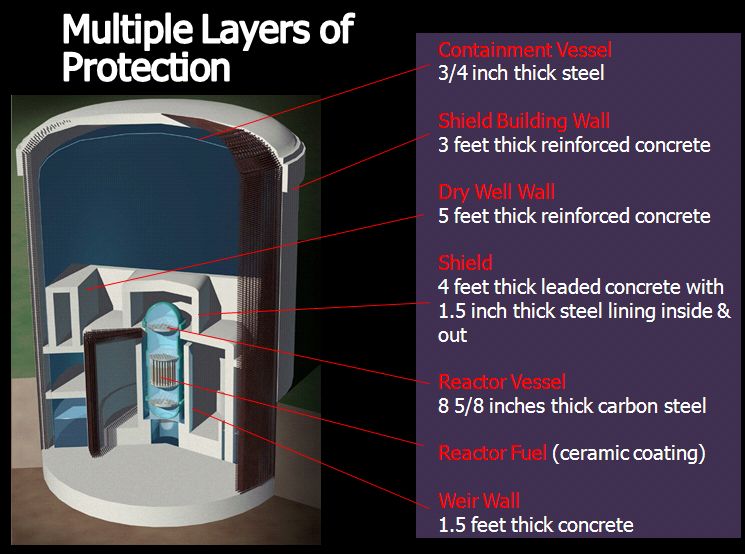
Now, when I consider the various safety protocols, protective layers, and specialized training required to operate nuclear power plants, I see a parallel with the book of Leviticus. Here’s a God who wants to live among His people, but He’s so holy that His very presence is dangerous. So, what does He do? He sets up safety protocols so that He can dwell safely in the midst of His people. He had the Israelites arrange the camp as a series of concentric rings radiating out from the center where the tabernacle stood. Outside the camp, far away, were all kinds of unholy realities like unclean animals, idolatrous nations, and demons. Away from the camp, but closer, lived those who were permanently unclean due to leprosy, a contagious and deadly skin disease. Nearer to the camp, were those who were temporarily unclean. Then inside the camp, was the holy nation that lived by the dietary, ceremonial, and moral purity laws. Moving closer to the center, we find the Levites, a special tribe uniquely commissioned with caring for the worship of God. As we approach the gate of the tabernacle courtyard, we encounter the priests, a subset of the Levites that lived by a stricter holiness code than the rest of Israel. Finally, as we enter the courtyard of the tabernacle, we step into sacred space where only Levites and priests could go and only when they are in a state of cleanness, carrying out sacrificial offerings according to God’s exact specifications.
Then into the tabernacle itself, only a few select priests could enter at special times for specific rituals outlined by God. Last of all, we find the holy of holies—the holiest place of all—where only one person could enter only once a year on the Day of Atonement (Yom Kippur). The high priest could go behind the veil into the holy of holies only after he filled the tent with smoke from burning incense. In order to approach the Ark of the Covenant and the very presence of Yahweh, he had to make sure he did everything according to the stipulations God provided. He wore a special hat, a special breastplate, special clothes, and even special underwear. Before entering, he had to make sacrifices for his own sins and those of the people. He stepped past the veil and came forward with the blood of the sacrifice peering through the thick smoke to make out the form of the ark. He would flick blood on the lid of the ark for the people and then get out of there. This was the closest anyone ever came to the mighty, holy God.
Because the priests had access right into the tabernacle itself, God instated stricter rules for them, including no burying the dead except for close relatives, mourning limitations, marriage limitations, harsher penalties for children, no loose hair, and no tearing clothes. Furthermore, if a priest had any physical blemish or disability, he could not draw near and enter the tent (21:16-24). Using our analogy of the nuclear reactor, only those dressed in a full radiation suit—complete with hood, face shield, gloves, and boots—could come near to the reactor’s core. Likewise, the priests wore specialized clothing, had restricted lifestyles, and followed meticulous protocols when in sacred space. All of this comes together when we consider the terrifying incident with Nadab and Abihu. Here is what the Scripture says.
Leviticus 10:1-3
1 Now Nadab and Abihu, the sons of Aaron, each took his censer and put fire in it and laid incense on it and offered unauthorized fire before the LORD, which he had not commanded them. 2 And fire came out from before the LORD and consumed them, and they died before the LORD. 3 Then Moses said to Aaron, “This is what the LORD has said: ‘Among those who are near me I will be sanctified, and before all the people I will be glorified.'” And Aaron held his peace.
Nadab and Abihu violated God’s holy requirements and paid the ultimate price as a result. I used to look at this as an act of God’s judgment—that God decided to execute these two disrespectful priests, but now I’ve started to think about the whole situation differently. It’s not so much that God couldn’t handle Nadab and Abihu’s insolence as they couldn’t handle God’s holiness. They got too close to His unfiltered holy presence, and they flouted protocol that was there to protect them. As for what precisely these two did wrong, it’s hard to say. We read that they “offered unauthorized fire” (Lev 10:1). Furthermore, the very next command God gave to Aaron in verse 9 was to abstain from wine or strong drink when entering the tabernacle (Lev 10:9). Nadab and Abihu may have been drinking alcohol prior to visiting the holy place. In the end, I’m not sure what unauthorized fire was or if they were drunk, but I do know from God’s response that these two drew near to God but failed to sanctify Him properly (Lev 10:3). This tells me that you don’t play around with God, especially when worshipping Him. God’s not a cushy teddy bear or sweet old man in the sky. He’s holy, holy, holy, and we must be holy if we want to be near Him. Nadab and Abihu were unprepared or willingly disobedient and ultimately found themselves consumed by God’s holiness. We would do well to learn from this incident what not to do.
However, today we are no longer living under this elaborate Levitical system because of two earth changing events: the coming of the messiah and the outpouring of the holy spirit. Because of Christ’s ministry, death, resurrection, and present role as mediator, we have a new way of relating to God. We no longer need to offer animal sacrifices, and the temple is long gone. Furthermore, from the day of Pentecost onward, Christ has poured out the holy spirit to all who call upon the name of the Lord (Acts 2:33). This spirit sanctifies us and enables God and Christ to dwell within us in a way that wasn’t available before. This is a staggering thought. The very God whose presence emitted a pillar of fire by night and smoke by day wants to live in you. You are part of the temple of God today.
1 Corinthians 3:16-17
16 Do you not know that you are God’s temple and that God’s Spirit dwells in you? 17 If anyone destroys God’s temple, God will destroy him. For God’s temple is holy, and you are that temple.
2 Corinthians 6:16-18
16 What agreement has the temple of God with idols? For we are the temple of the living God; as God said, “I will make my dwelling among them and walk among them, and I will be their God, and they shall be my people. 17 Therefore go out from their midst, and be separate from them, says the Lord, and touch no unclean thing; then I will welcome you, 18 and I will be a father to you, and you shall be sons and daughters to me, says the Lord Almighty.”
What a mind-blowing reality! God makes His dwelling in us through His spirit. This God is just as holy today as He was when His holiness consumed Nadab and Abihu in a blazing fire. What was their sin? They drew near to God’s presence without proper attitude and holy conduct. We find a similar incident with Uzza who touched the ark and fell to the ground dead. What was his crime? Once again, he got too close without following God’s established protocol. What about you? If God will dwell in you, then you must be holy. You can no longer live like the world, “but as he who called you is holy, you also be holy in all your conduct, since it is written, ‘You shall be holy, for I am holy’” (1 Peter 1:14-16). Fortunately for us, we are not alone in our quest for holiness. God is here to sanctify us through His spirit, making us a fitting home for His presence to dwell. Still, we dare not treat Him in a common or casual manner. He is a holy God, so let us sanctify Him in our hearts as is fitting for saints.
1 Thessalonians 5:23
23 Now may the God of peace himself sanctify you completely, and may your whole spirit and soul and body be kept blameless at the coming of our Lord Jesus Christ.
[1] John E. Hartley, Leviticus in Word Biblical Commentary, Vol 4, de. Bruce Metzger, (Nashville: Thomas Nelson, 1992)lvi-lvii.
[2] https://www.youtube.com/watch?v=l9vn5UvsHvM
[3] https://www.nas.nasa.gov/About/Education/Ozone/ozonelayer.html


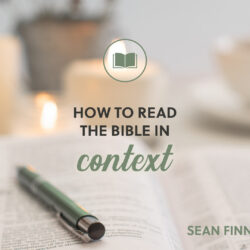
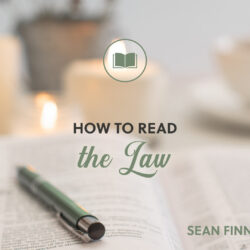
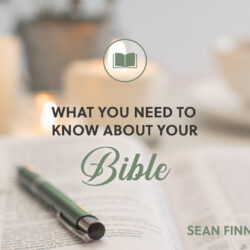
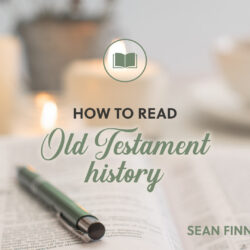
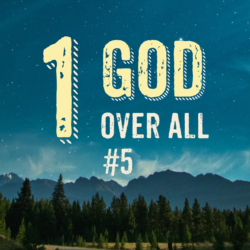

Great article. It also made me wonder if John the Baptist’s diet didn’t break God’s culinary law about not eating anything that swarms and crawls on the ground,
Good question, Val :
Apparently, the Locust is the only insect that Israeli Jews consider kosher. Fried locusts are a crunchy kosher snack !
Locusts and wild honey were both acceptable as food see:
Lev 11:21-22
(21) Yet these may ye eat of every flying creeping thing that goeth upon all four, which have legs above their feet, to leap withal upon the earth;
(22) Even these of them ye may eat; the locust after his kind, and the bald locust after his kind, and the beetle after his kind, and the grasshopper after his kind.
The God of the new testament is so different from the God of Leviticus. It makes me wonder who wrote this. Sounds so pagan and contrary to the God and his breath that is in the new testament and our experience with his breath (spirit). God invented birth. Why would it be unclean.
Why the emphasis on clean and unclean? Why were they called “unclean to you” instead of unclean for all?
And why were some things considered purely “unclean” while others were called “abominations”?
What was the purpose for clean and unclean? I believe part of the answer is found here:
Eze 44:23
(23) And they (the priests, the sons of Zadok) shall teach my people the difference between the holy and profane, and cause them to discern between the unclean and the clean.
Was the Torah actually done away with? Was it moved from stones to our hearts and minds? What is sin? Isn’t sin the transgression of the “Law” (See 1 Jn 3:4) Then what is a transgression?
So many questions…
Now there is a place to start!